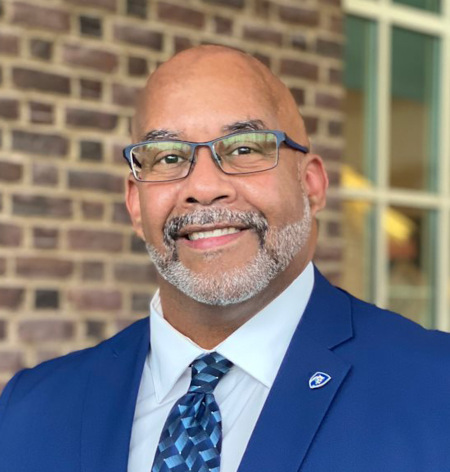Going to school while working full-time as a nurse and raising a four-year-old with her husband isn’t easy, so Ashley Willie knew she wanted an online nursing program with supportive instructors and a flexible schedule.
Willie, who is pursuing a doctorate in nursing online through Penn State World Campus, where she also received a master’s in nursing, said she wanted professors who were inclusive and available to meet with students.
“I wanted instructors who were interested in their students’ personal and career goals as well as their educational goals,” she said.
In addition, she said, “I was looking for a program that didn’t require me to be online at a certain time. I wanted more freedom and autonomy.”
Willie said prospective nursing students should look at what kind of financial support and resources are available for minority students, as well as what past and current students and instructors have to say about the program. And of course, they should check the matriculation rate and accreditation of a school, she said.
Financial support: putting your money where your mouth is
Sheldon Fields, the inaugural associate dean for equity and inclusion at the Penn State Ross and Carol Nese College of Nursing, agreed that prospective students should look at what kind of financial resources an institution commits to multicultural students.

Sheldon Fields, PhD, RN, CRNP, FNP-BC, AACRN, FNAP, FAANP, FAAN. Associate Dean for Equity and Inclusion, Ross and Carol Nese College of Nursing.
“To put their money where their mouths are, schools need to be committing resources — sponsoring lecture series, offering scholarships, resources specifically focused on supporting multicultural students,” he said.
Fields, who has been a nurse for 30 years, said schools should have a clear stance on diversity, equity and inclusion that is reflected in their mission statement and their strategic plan, which should be available online, and should also teach diversity, equity and inclusion issues as part of their undergraduate and graduate curricula.
If there are no multicultural nursing student groups and the topic appears to be ignored, “It’s a big red flag,” Fields said. “A multicultural student is not going to find support for who they are, for the unique perspectives and talents that they bring, and the needs they have.”
Fields urged prospective students to look carefully at a school’s nursing faculty.
“It’s one thing to say you want a diverse faculty; it’s another to actually make it happen,” he said.
Denita Wright Watson, associate director of equity, inclusion, and advocacy for the Penn State World Campus Student Affairs office, urged students to seek out institutions that focus on addressing health care disparities, inequities, and bias in health care and that are focused not only on attracting diverse talent, but also retaining it. Schools should go beyond lip service to invest in students’ academic and professional success, she said, by providing professional development opportunities and other career services, as well as supporting students’ personal well-being through mental health support, student identity groups and DEI–related programs.
Ask questions

Denita Wright Watson, MLD, Assoc. Director of Equity, Inclusion, & Advocacy for Student Affairs. Penn State World Campus.
Students should ask, “What support is out there for me, beyond academic support?” Wright Watson said. “What support is there to aid in my growth as a person?”
Prospective students should “scour and scour” a school’s website not only for their mission and values statements, but also to see what service projects the institution is involved in and what kind of speakers and events are offered, Wright Watson said.
“Google should be their best friends,” she said. “Just ask questions: Why should I pick this university? Why should I pick this program? What are they doing to meet the needs of underserved students and communities?”
Fields added: “Ask them, ‘What did you learn in a program about diversity, equity and inclusion?’ If they tell you nothing — run the other way.”
Feeling valued
Willie agreed that it’s important to look for an institution that recognizes health care inequities and equips students with tools to help reduce health care disparities, seeking to improve health care outcomes at both the individual and the population levels. An example of that is teaching students methods of recognizing vulnerable populations and using evidence-based tactics to improve health care literacy and health and wellness, she said.
All her professors at Penn State have valued both her cultural and professional background and make time to meet with individual students to discuss their goals and aspirations, Willie said.
“For me this is very important because not only do I feel valued individually, I feel like the instructors are invested in my success as a woman of color.”
Visit the Penn State World Campus website for more information about earning a nursing degree or certificate online.
- Tips for Prospective Students Applying to Nursing School - December 29, 2021




